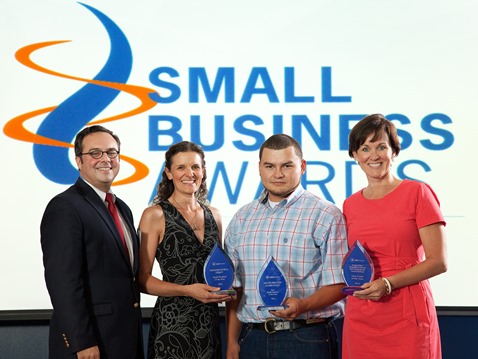
Views West
by Murrel Bland
I attended the annual small business awards luncheon Friday, June 6, at the Sporting Park, Kansas City, Kan. Wendy Torrance of the Kauffman Foundation was the featured speaker. She is the director of entrepreneurship, focusing on developing quality education that provides resources for people who will go into business for themselves.
As I listened to the presentation, I couldn’t help but recall the brief times that I covered Ewing Marion Kauffman, who founded and built a very successful pharmaceutical company, Marion Laboratories. Despite the very short times I was with him, he left a very significant influence on me.
I first met Kauffman in 1967 in his office in south Kansas City, Mo. I was working for The Big Daily Over Town; Kauffman was named as one of the potential owners of an expansion Major League Baseball teams. The newspaper needed a photo of Kauffman; he invited me into his conference room. He was negotiating the purchase of an Illinois pharmaceutical company. I don’t recall much of what was being discussed as I shot photos. The fellow who owned the Illinois company was bragging about the thoroughbred race horses he owned.
On Jan. 1, 1968, Betsey Transou (now Betsey Solberg) and I were at Kauffman’s Mission Hills home. Major League Baseball had just named Kauffman as the owner of what was to become the Kansas City Royals. Kauffman was entertaining a man who was a candidate to become his corporate pilot. I recall two things about that meeting. Kauffman was very proud to have been chosen to be the owner of the baseball franchise; he was very disappointed about a recent article about him that appeared in Time magazine. The article wasn’t inaccurate—Kauffman didn’t like the way he and his company were portrayed.
Although Kauffman was quite successful and wealthy, he was first generation money and wasn’t really accepted by some of his snooty “old” money neighbors in Mission Hills.
I admired Kauffman because of how he developed his company. After working as a salesman for a pharmaceutical company, he decided to go into business for himself in 1950. He started his company out of his home’s basement on Troost Avenue in mid-town Kansas City, Mo. His gross sales the first year were $36,000 with a net profit of $1,000. He merged his company in 1989 with Merrell Dow when the company had annual sales of nearly $1 billion.
I recall hearing Kauffman speak at a sales training session over town some time in the early 1970s. He told how he got to know the “gatekeepers” in medical doctors’ offices—the receptionists. He knew their names, their birthdays and their kids’ names. That is how he got in to see the medical doctors who would prescribe his products.
Kauffman told of how he chose sales personnel. He looked for competitive people—those who excelled at athletics—particularly swimming and track. And he set an excellent example.
“I’m a hell of a salesman,” Kauffman said.
Kauffman was an excellent salesman. And he attracted excellent sales personnel—that is the way he built his company. But he will be best known for establishing the Kauffman Foundation.
Kauffman and his philosophy is best summed up by this quote that appears on the Kauffman Foundation website: “ I think the greatest satisfaction I have had, personally, is helping others, doing something that either inspires them or aids them to develop themselves in their future lives so they’ll not only be a better person but be a better productive citizen of the United States.”
Those who won awards at the Chamber of Commerce meeting included the Argentine Neighborhood Development Association, nonprofit of the year; AguaFina, new small business of the year; and Preferred Physical Therapy, small business of the year.
Murrel Bland is the former editor of The Wyandotte West and The Piper Press. He is the executive director of Business West.
